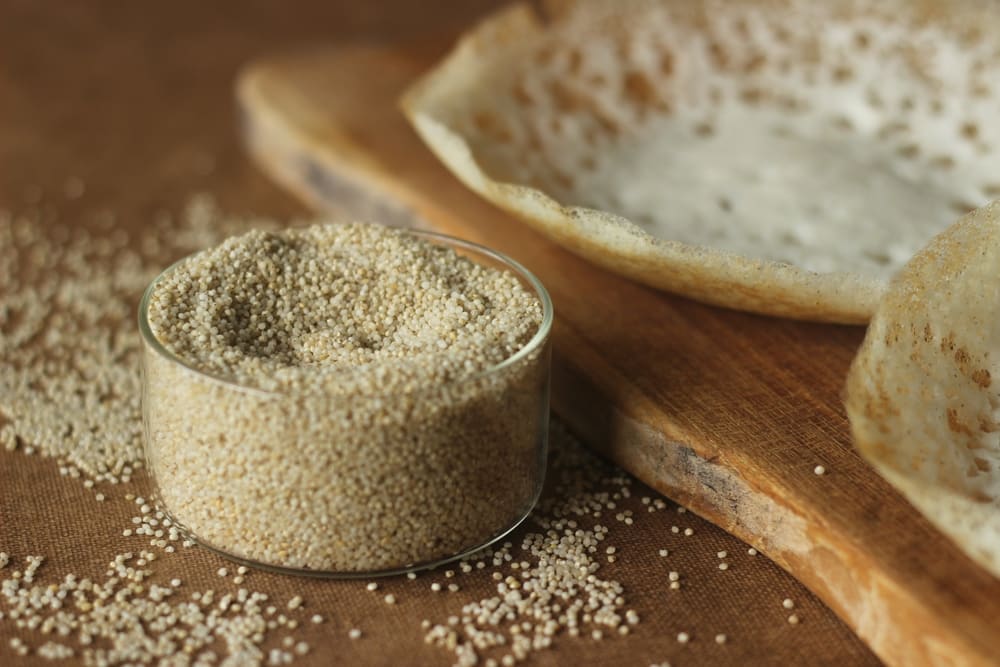
Millet is one of the most reliable sources of protein and fiber that you can include in a mix. While there is an extensive range of millet in the market, you can rely on this versatile ingredient for many recipes. Depending upon the price point and cooking requirements, make sure to experiment with different variants. The slight difference in the flavor makes a lot of difference in the final recipe. So, make sure to find the type that best matches your stock.
Recently quite a few users have asked about Golden Millet and Japanese Millet. If you’re also confused between these two items, then the following information should help you decide which one to choose for the mix.
Golden Millet vs Japanese Millet
Golden Millet
As compared to the Japanese millet, this variety brings a better value to the users in terms of production rate and the quality of the final product. The best thing about this millet is that it has a faster maturity period, and you won’t have to wait as long to get the Golden Millet yield. So, you should prefer this option if you’re looking for something to plant for your ducks. It can also get around 25 inches in length, depending on the soil conditions and the nutritional content.
In comparison to Japanese millet, you won’t have to find wet conditions to plant golden millet. Many users have mentioned that this works perfectly in soil that doesn’t maintain a high volume of water. So, if you live somewhere with low water content, then Golden millet is the perfect option for you. You won’t have any luck with the Japanese millet, and they will end up dying in the middle of the growth cycle.
With that said, most people just prefer to create a mixture by using different varieties of millet. So, you can always experiment with mixing the golden millet with Japanese millet and then feed the product to the ducks. You’ll notice much better results while using both varieties of millet in the mixture.
All in all, most users prefer to go with Golden millet over Japanese millet because of their improved yield and easy maintenance. So, if you’re a beginner and don’t know much about planting and managing millet, then sticking with this variety will serve you better in the long run. On the other hand, if you’re purchasing millet from the market, then you should go for a better deal and try to save your money.
Japanese Millet
It is one of the more affordable Millet types that are better suited for wet soil conditions. If you live in a region with frequent rain and high moisture in the air, then sticking with Japanese Millet is one of your best options. The Golden Millet won’t perform well in wet conditions, and there is a good chance that you’ll be struggling to manage the production rate. So, make sure to evaluate the environmental conditions before making the purchase.
In terms of nutritional content, fiber, and protein, the value proposition, and presentation of both these millet varieties are pretty similar. You won’t find any substantial differences when you’re feeding this millet to your ducks. For this reason, you’ll notice users going for the cheaper alternative between the two to manage the budget better.
With that said, Japanese Millet is not as popular as Golden Millet because of its reduced production rate and poor performance through the dry seasons. So, you should keep this information in mind on your next trip to the store. Make sure also to seek guidance from a local expert if you’re not sure on how to manage the quality of millet planted in your setup.
All in all, Japanese millet is considered an inferior option because of less production rate and poor performance through dry seasons. Other than that, there are no differences between the Golden and Japanese millet when it comes to the final nutritional content. So, you can go with either one of these options or switch to a mixture that combines both Japanese millet and golden millet for your ducks. The quality of the millet matters more than the variety, and you should focus more on finding a reliable dealer. That way, you will notice substantial improvements in your stock.